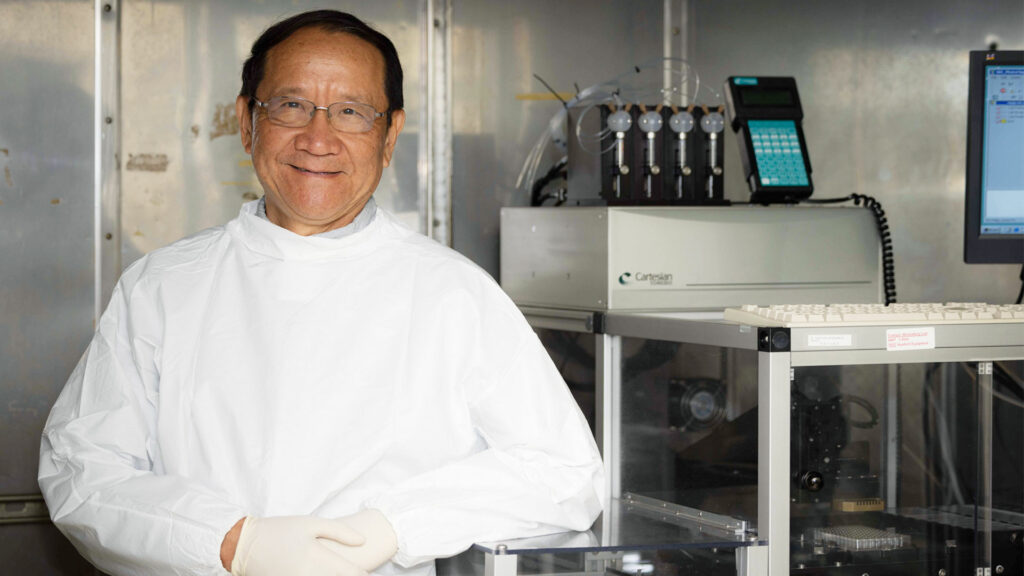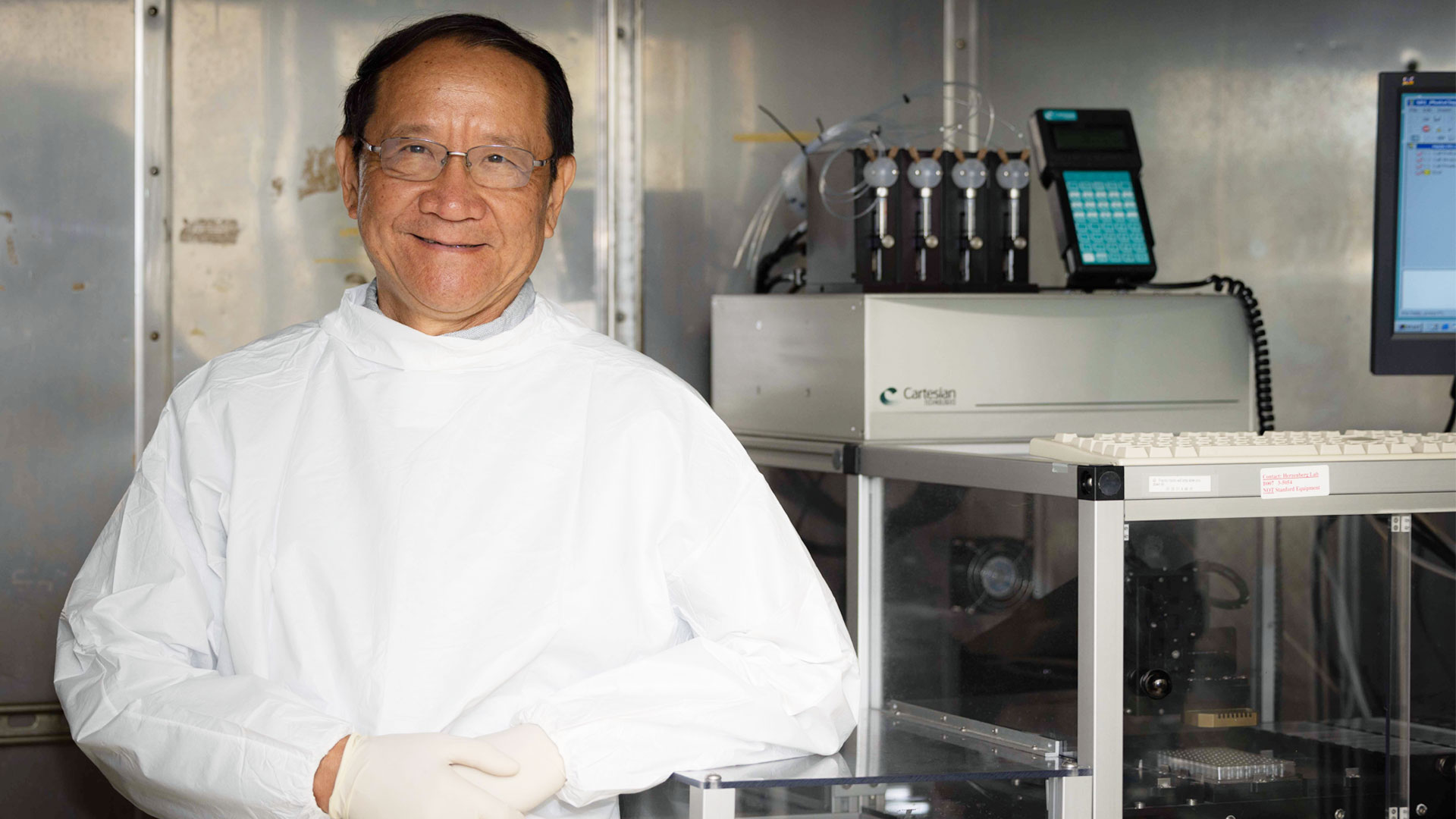
Denong Wang of SRI’s Tumor Glycomics Lab discusses strategies to explore sugar chain signatures of microbes and cancers.
Every organism has an associated glycome, a unique profile of associated carbohydrates also known as sugar chains or glycans. Glycomics, the study of individual glycomes, may lead to the development of new strategies for disease diagnosis, cancer detection, and precision immunotherapy.
SRI Biosciences’ Senior Program Director of the Tumor Glycomics Laboratory, Denong Wang, and his team specialize in exploring the diversity of glycomes to identify sugar chain signatures of microbes and cancers.
In Wang’s recent publication in Springer Methods in Molecular Biology, his team presents protocols for detecting immunologically potent carbohydrates—the sugar chain signatures of cells that often trigger immune responses—and discusses strategies to identify promising targets for therapeutics. We spoke with Wang to learn more about his publication.
What is the purpose of this publication and why is it important for the scientific community?
Our intent is to provide practical assay protocols that scientists can use to identify and characterize sugar chain signatures that are immunologically potent and clinically significant, such as those of cancer cells and pathogens.
Every cell’s exterior is decorated with sugar chains. Our immune systems are trained to recognize these sugar chain signatures and — in the case of pathogens or cancer cells — produce specific antibodies for defense in response. Therefore, protocols to characterize these sugar chain signatures have promising implications in disease diagnosis and development of new biomedical therapeutics.
Sharing these protocols with the scientific community enables a wider network of scientists to characterize these immunologically potent targets across a range of fields, thus contributing to the health and wellness of people impacted by the diseases or cancers being studied.
How are these protocols used with other current technologies for effective identification of microbes and tumors?
We’ve integrated the use of multiple assay platforms to explore sugar chain targets. For example, we can use carbohydrate microarrays or glycan arrays to screen for the targets specific for a pathogen or tumor. Then, we verify pathogen- or tumor-expression of specific sugar signatures using other assays, such as glycan-specific enzyme-linked immunosorbent assay (ELISA), flow cytometry, and Fiber-optic Array Scanning Technology (FAST-scan).
This strategy has proven effective for identifying immunologically significant sugar chains. Our studies using this strategy have led to the recognition of immunogenic sugar signatures of B. anthracis spores, SARS-CoV, or circulating tumor cells.
What has been SRI’s role in the development of glycomics research?
We have a long-term research interest in identifying the carbohydrate or sugar chain signatures of microbes and cancers. Over years, our team and other researchers have made dedicated efforts to develop new tools to study these carbohydrates, including multiple platforms of carbohydrate microarrays or glycan arrays that may serve as powerful means to probe the sugar chain signatures for biomedical use.
In the Carbohydrate Microarray platform protocol, we discussed key features of different platforms, which may be applied complementarily to explore carbohydrate targets. We are excited to continue advancing glycomics research at SRI to address challenging issues, such as the development of broad-spectrum anti-viral agents to enhance pandemic preparedness and exploration of tumor glycan markers to advance precision immunotherapy.



